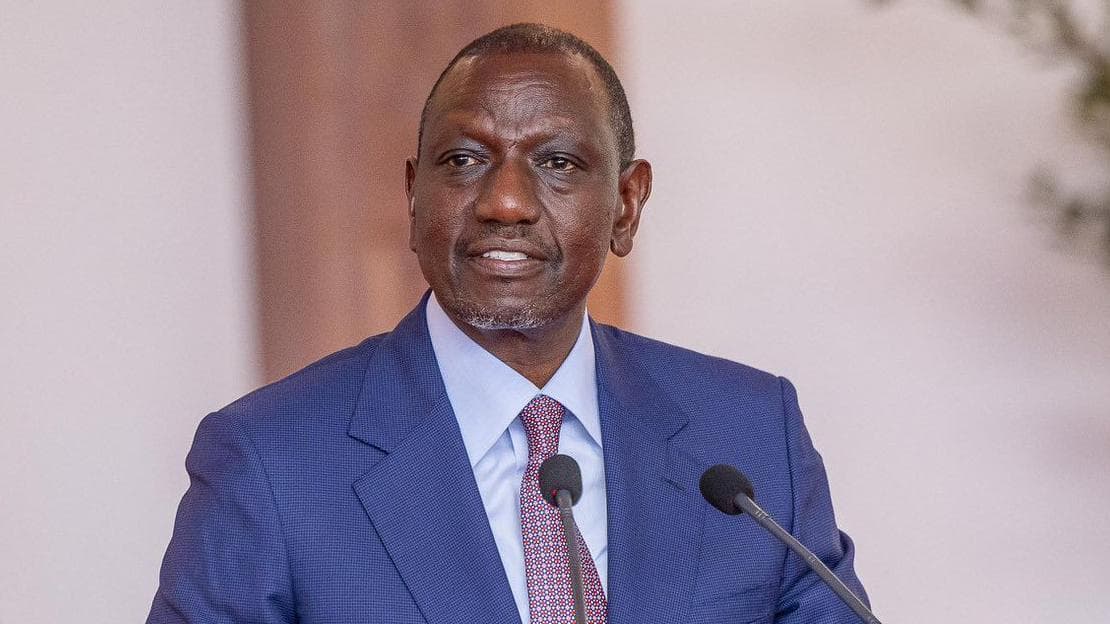We're loading the full news article for you. This includes the article content, images, author information, and related articles.
Streamline News examines President William Ruto's recent statements on Kenya's economy, debt, and development, cross-referencing his claims with official data and independent reports to provide a factual analysis for the Kenyan public.

In a recent interview with Al Jazeera, President William Ruto presented a positive assessment of his administration's performance, particularly concerning Kenya's economy. One of the key claims made was that Kenya is now the sixth-largest economy in Africa due to the steps his government has taken. According to the International Monetary Fund's (IMF) World Economic Outlook from April 2025, Kenya's Gross Domestic Product (GDP) was $136.01 billion, ranking it sixth on the continent. This is an improvement from 2022, when Kenya was ranked eighth with a GDP of $114.73 billion. The World Bank also projects that Kenya's economy will grow by approximately 4.5 percent in 2025. However, the Kenya National Bureau of Statistics (KNBS) reported a moderated growth rate of 4.7% in 2024, down from 5.7% in 2023.
President Ruto also asserted that the Nairobi Stock Exchange (NSE) was voted the best in Africa. There is no available evidence to support this claim. However, analysis by Morgan Stanley Capital International (MSCI) indicated that by September 2025, the NSE had the third-highest dollar returns in Africa.
The issue of public debt remains a significant concern for many Kenyans. As of June 2025, Kenya's public debt stood at KSh 11.81 trillion, which is 67.8% of the GDP. This is an increase from 63% in 2024. The National Treasury confirmed these figures, adding that the debt service to revenue ratio stood at 67.1% as of May 2025, well above the IMF's recommended threshold of 30.0%. This means a large portion of the government's revenue is allocated to servicing debt, limiting funds for other essential expenditures.
Regarding the cost of living, data from November 2025 indicates that the estimated monthly costs for a family of four are approximately KSh 239,222, excluding rent, while for a single person, it is about KSh 64,899. While inflation has seen a significant decline from 7.7% in 2023 to 4.5% in 2024, the prices of essential goods and services, including food, housing, and utilities, remain a challenge for many households.
The government's affordable housing program aims to construct 200,000 units annually. As of April 2025, approximately 140,000 units were reported to have been completed. However, the program has faced challenges, including legal disputes and criticism over the pace of delivery, with some critics noting that not a single house had been handed over since 2022 as of March 2025.
President Ruto claimed that his administration has increased maize production by 50 percent, from 44 million bags to nearly 70 million bags last year. According to the National Agriculture Production Report 2025 by the KNBS, maize production in 2024 was 44.76 million bags. The government announced in September 2025 that it was projecting a harvest of 70 million bags for 2025, making the President's claim about the previous year's output unverifiable as it is based on a projection.
On education, the President stated that his government has hired 100,000 more teachers and built 23,000 more classrooms. This claim requires further investigation as specific, verifiable data from official sources was not immediately available in the fact-checking reports. FURTHER INVESTIGATION REQUIRED.
President Ruto's administration has also focused on reforming Kenya's foreign policy to be more citizen-centered and to position the country as a key player in global affairs. This includes prioritizing regional integration, economic diplomacy, and addressing global challenges such as climate change and the reform of international financial institutions. The government has also established a State Department for Diaspora Affairs to protect and empower Kenyans abroad.
On the issue of corruption, President Ruto has publicly stated his commitment to fighting graft, vowing that there will be no sacred cows. He has accused some Members of Parliament of demanding bribes, a statement that has caused friction between the executive and the legislature. These allegations come as a 2024 survey revealed that corruption remains a deep-rooted problem in the country.
The analysis of President Ruto's statements in his Al Jazeera interview reveals a mixed picture. While some claims, such as the growth of Kenya's economy to become the sixth largest in Africa, are supported by data from international financial institutions, others, like the assertion about the Nairobi Stock Exchange being the best in Africa, are not substantiated by available evidence. Projections in the agricultural sector have been presented as accomplished facts, and some figures on development projects require further verification. The administration faces ongoing challenges with public debt and the high cost of living, despite a reduction in the inflation rate. The government's focus on a revised foreign policy and its public stance against corruption are notable, though the impact of these initiatives is yet to be fully realized.
Keep the conversation in one place—threads here stay linked to the story and in the forums.
Sign in to start a discussion
Start a conversation about this story and keep it linked here.
Other hot threads
E-sports and Gaming Community in Kenya
Active 9 months ago
The Role of Technology in Modern Agriculture (AgriTech)
Active 9 months ago
Popular Recreational Activities Across Counties
Active 9 months ago
Investing in Youth Sports Development Programs
Active 9 months ago